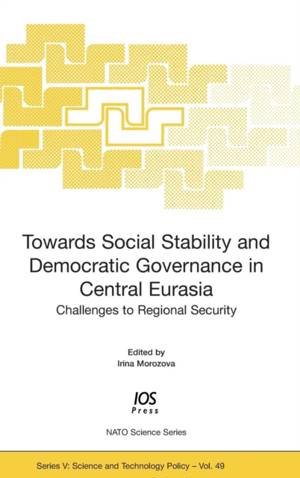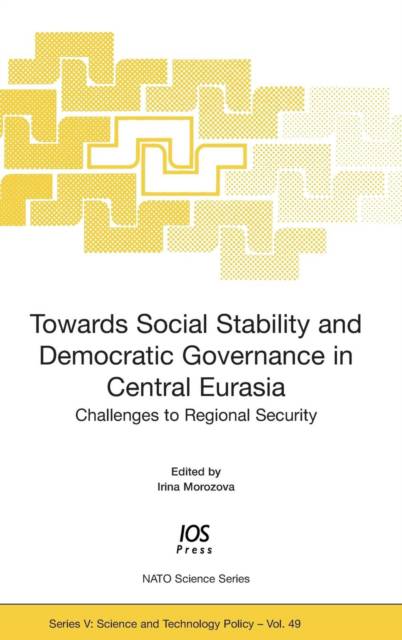
- Retrait gratuit dans votre magasin Club
- 7.000.000 titres dans notre catalogue
- Payer en toute sécurité
- Toujours un magasin près de chez vous
- Retrait gratuit dans votre magasin Club
- 7.000.000 titres dans notre catalogue
- Payer en toute sécurité
- Toujours un magasin près de chez vous
Towards Social Stability and Democratic Governance in Central Eurasia
Challenges to Regional Security
270,95 €
+ 541 points
Description
Through invasions, migrations, trade and cultural exchange, developments in Central Eurasia have, for millennia, impacted upon the history of both Europe and Asia. For the last three hundred years, Central Eurasia has been the stage upon which great empires clashed. Following the dissolution of the Soviet Union, Central Eurasia has once again emerged as a region of geo-political concern with various new international actors involved: the USA, international monetary organizations, strategic alliances, TNCs, NGOs, regional blocks, as well as criminal groups and ethno-religious movements. The new 'centrality' of Central Eurasia brings new security threats to the region's population, to Europe and to the rest of the world. Repressive political regimes and marginalization of whole groups of the population inflame conflicts that spill across national borders. Migration to Europe, both legal and illegal, the illicit production and trade of drugs are the direct outcome of social-economic destabilization in Central Eurasia. Territorial disputes, border conflicts and competition for resources among the Central Eurasian ethnicities have become the unfortunate reality. Post-Soviet Central Eurasia, as a direct neighbor to the turbulent Middle East, is a potential playground for extremist movements: radical Islamic groups and terrorist organizations. The contributors to this book, coming from various theoretical schools and presenting innovative interdisciplinary approaches, provide their views on the socio-political challenges confronting the nine Central Eurasian states - Kazakhstan, Uzbekistan, Kyrgyzstan, Tajikistan, Turkmenistan, Mongolia, Armenia, Azerbaijan and Georgia. The book presents scientific discussions on the historical development of Central Eurasia and its socio-cultural legacies; Soviet and contemporary state organization, social transformation and communal structures; the current economic conditions as a precursor to social stability and development; and geo-political arrangements and political changes over the last two decades.
Spécifications
Parties prenantes
- Editeur:
Contenu
- Nombre de pages :
- 324
- Langue:
- Anglais
- Collection :
- Tome:
- n° 49
Caractéristiques
- EAN:
- 9781586035457
- Date de parution :
- 15-11-05
- Format:
- Livre relié
- Format numérique:
- Genaaid
- Dimensions :
- 156 mm x 234 mm
- Poids :
- 630 g






